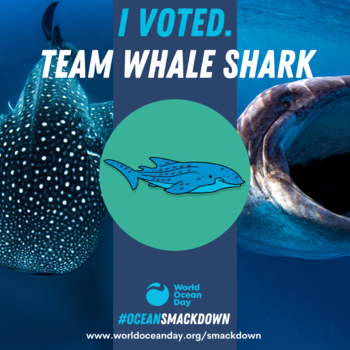Our ocean, one of the few things shared by everyone on the planet, is firstly one of the most vital pieces of the intricate system maintaining life on Earth. The Ocean covers 70% of the planet, produces roughly 50% of the oxygen in our atmosphere, and is our most biodiverse habitat. The Ocean is a popular vacation destination, a means of travel, and a major part of the global economy. June 8th, World Ocean Day, serves as an annual celebration to honor our Ocean and unite the globe around conservation of the Sea, its beaches, and the flora and fauna that call it home.
World Ocean Day was first proposed by a Representative from Canada at the 1992 Earth Summit in Rio, since then it has grown into a globally celebrated event. In 2008 the United Nations General Assembly officially recognized the holiday and changed its name to World Oceans Day, but the ‘s’ was to be temporary. In 2021 the name was changed back to World Ocean Day to symbolize the unity of the population over our shared sea. After all, the Ocean covers 70% of the planet and touches every continent.
The World Ocean Day Youth Advisory Council, created in 2016, is a unique collective of youth around the world that shape World Ocean Day as a holiday and as a movement of Ocean conservation. The Youth Advisory Council is active throughout the year to bring attention to the issues facing our Ocean and action towards protecting and preserving it. The Youth Advisory Councils current campaign is “30 x 30,” with the goal of protecting 30% of the planet by 2030. They work towards this goal with petitions, advocacy campaigns, an active social media presence, and unique “youthathons.”
Youthathons, hosted by the World Ocean Day Youth Advisory Council, are 24 hour live stream events that aim to raise awareness to specific environmental issues and conservation projects. Specifically designed for youth, they serve as a digital community where youth can connect, energize, and act around the environment. Youthathons help to mobilize young environmental stewards and connect them with a like minded community, raising awareness and elevating motivations for meaningful action. The 24 hour time period allows for people from all across the globe to tune in when they can, and each hour is dedicated to a different topic, such as deep sea mining or mangrove restoration.
This year the World Ocean Day organization is hosting the first ever “World Ocean Day Smackdown,” a voting competition to elect the world’s favorite ocean animal while counting down to World Ocean Day 2022. There are three steps to participate; first vote for your favorite ocean animal, then sign the 30x30 petition, and lastly share proof of your participation on social media to further spread awareness of ocean conservation. This year the UN has announced the theme for World Ocean Day 2022 as ‘collective action for the ocean’. What better way to encourage collective action than participating and sharing the World Ocean Day Smackdown?
Conservation of the Ocean is important now more than ever. “With 90% of big fish populations depleted, and 50% of coral reefs destroyed, we are taking more from the ocean than can be replenished.” The challenges associated with climate change are only increasing, further exacerbating these and many other Ocean health issues. World Ocean Day, June 8th, serves as a reminder to advocate for our Ocean as it was the beginning of all life on Earth and continues to serve many vital roles on our planet today. Although ocean conservation is important every day, World Ocean Day reminds us to advocate and act towards a more sustainable society and a healthier planet.
Ocean and forest health go hand in hand, as both sea and forest habitats support a wide range of lifeforms and absorb carbon from the atmosphere. In fact, CO2 is a leading cause of ocean acidification, and the ocean absorbs about 25% of the carbon created by humans each year. Greenstand’s work is supporting the growth of healthy forests all across the globe through the Treetracker, an open source monitoring and mapping platform that allows tree growers to generate income for their environmental services. By growing more trees and managing more healthy forests we could reduce the amount of CO2 in the atmosphere, reducing the amount absorbed by the ocean, preventing further ocean acidification, and thereby protecting many of the vulnerable species that depend on a stable ocean ecosystem. The Ocean and Earth’s forest are vital parts of the system maintaining life on our planet. Both must be carefully managed and conserved, and both are critical to mitigating the effects of climate change.
Check out the global Treetracker Web Map here!
And find ways to get involved on our volunteer page: https://greenstand.org/contribute/volunteer

